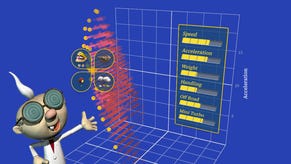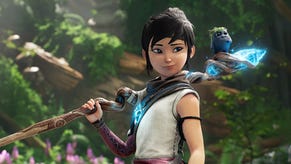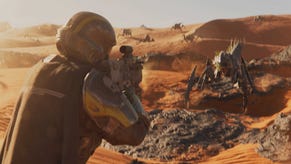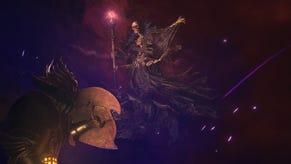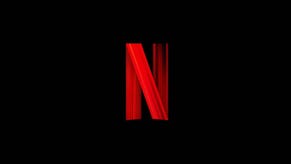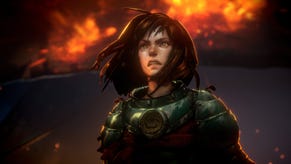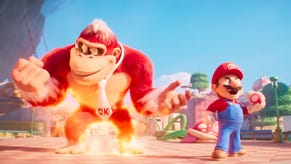Hack on the Dotted line
The latest bizarrely titled Japanese cross-media experience is on the way to the West
We're really not sure who thought up the name .hack//sign (pronounced "dot hack slash sign", by the way), or for that matter what drugs they were on at the time, but whoever it was that dreamt up the title of what is now one of the hottest anime properties on Japanese television certainly has a knack for the unusual and the downright weird. Set in an online game - an MMORPG played in an environment called The World - .hack//sign is perhaps best described as Phantasy Star Online The TV Series. The character and environment designs are superficially similar to Sega's seminal online RPG, and the constant references to standard RPG conventions and quirky mentions of internet concepts such as server administrations, log files and characters disappearing from the story occasionally because they have to deal with some "real life stuff" only serve to enforce that feeling. However, there's a lot more to .hack//sign than that. In fact, it's simply one part of a much broader cross-media 'experience' which centres on a PS2 game called .hack - a highly unconventional single player RPG, set within the world of an online game. It's the kind of bizarre and self-referential concept that could only come out of Japan, and which is already a media phenomenon there before it's even released. (And remember, that's "dot hack"… yeah, you get the idea. I'm just terrified of letting that one slip ever since being subjected to an American who insisted on pronouncing it "period hack" the whole way through a conversation…) Of course, some of the big names involved haven't hurt .hack's prospects at all. .hack//sign, the TV series which is based on the game, was created by the director and some of the team behind one of last year's huge hits, Noir - which may not mean much to you, but to the Japanese game-buying and anime-watching public, that's a pretty big deal. An even bigger deal is the involvement of a studio called Gainax, who created a short (and again separate) animated .hack series which will be bundled with the .hack PS2 game as a second DVD. Gainax are the people behind Neon Genesis Evangelion, the angsty-teenager-and-a-robot series with a difference which arguably revitalised the anime market in the mid-nineties, and was partially responsible for the massive boom in the genre in the USA and more recently in Europe. A new Gainax series is big news both in Japan and in Western fandom, and recent reports that the anime DVD will also be bundled with .hack when it's released in the USA is good news indeed. Whether we'll see the whole media circus being brought to Europe at any point is as yet unclear - but given the growing popularity of both RPGs and anime in this territory, it doesn't seem in the slightest bit unlikely. Media circus, by the way, is no exaggeration - so far there's a TV series, an OVA series (that's "Original Video Animation", indicating a short series, usually with very high production values, which is released gradually on DVD or video rather than being broadcast on TV), console games and sundry other bits of merchandise and media. Besides the growing popularity of RPGs and anime though, there is of course the outstanding example of Pokemon, which enjoyed roaring cross-media success over here. Whether the same can be true of the much more mature and thoughtful .hack phenomenon will be very interesting to see.

